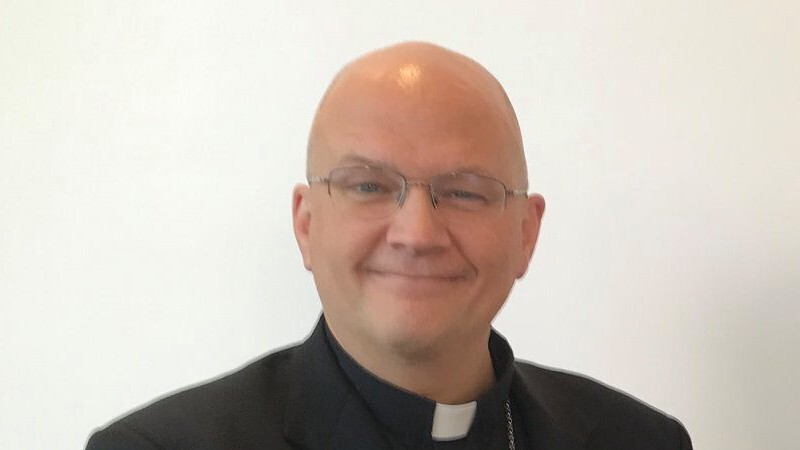
Bishop Edward Weisenburger of the Diocese of Tucson. | Bishop Edward Weisenburger/Facebook
Bishop Edward Weisenburger, of the Diocese of Tucson, offered a reflection focusing on one aspect of the events we remember on Palm Sunday—namely, when Peter denied Jesus three times, as Jesus predicted.
The bishop pointed out that although Peter denied Jesus, he was given the opportunity to make up for it and was forgiven.
"Around the world, we will celebrate Jesus' triumphant entry into Jerusalem, where the great Passover—Jesus passing over from death to life—will begin to unfold," Weisenburger said in a recent YouTube video from the diocese. "It is the central event of human history, and his Passion necessarily precedes the glory of his Resurrection."
The reading for Palm Sunday, part of Luke 22, tells the story of Peter's triple denial of knowing Jesus; the United States Conference of Catholic Bishops website said.
"Friends, what happened here was a betrayal," Weisenburger said. "A betrayal of a relationship; because in the end, that's exactly what Christianity is—an actual relationship with the person, Jesus. And is it not true that in some precious and usually unexpected way, we have found Jesus looking straight at us, as well."
Peter's story continued weeks later when the risen Christ asked three times, "Peter, do you love me?"
"And with each of those three professions of Peter's love for Jesus, it's as if each of those earlier three denials is wiped away," Weisenburger said.
Palm Sunday is the first day of Holy Week and the Sunday immediately preceding Easter, a report on Britannica.com said. Participants in Palm Sunday Masses typically receive palm leaves, which commemorate Jesus' entry into Jerusalem before his crucifixion.
Pope Francis celebrated Palm Sunday Mass in Rome, a Sunday release by the Vatican said. In his homily, he noted that those who were surrounding Jesus during the time leading up to his crucifixion kept urging him to "save himself."
"Against this self-centered mindset is God's way of thinking," Francis said. "The mantra 'save yourself' collides with the words of the Savior who offers his self."
The pontiff went on to emphasize the fact that as he was being crucified, Jesus asked God to forgive those who persecuted him, the release said. He connected that forgiveness to the way God is willing to forgive us for our sins.





 Alerts Sign-up
Alerts Sign-up